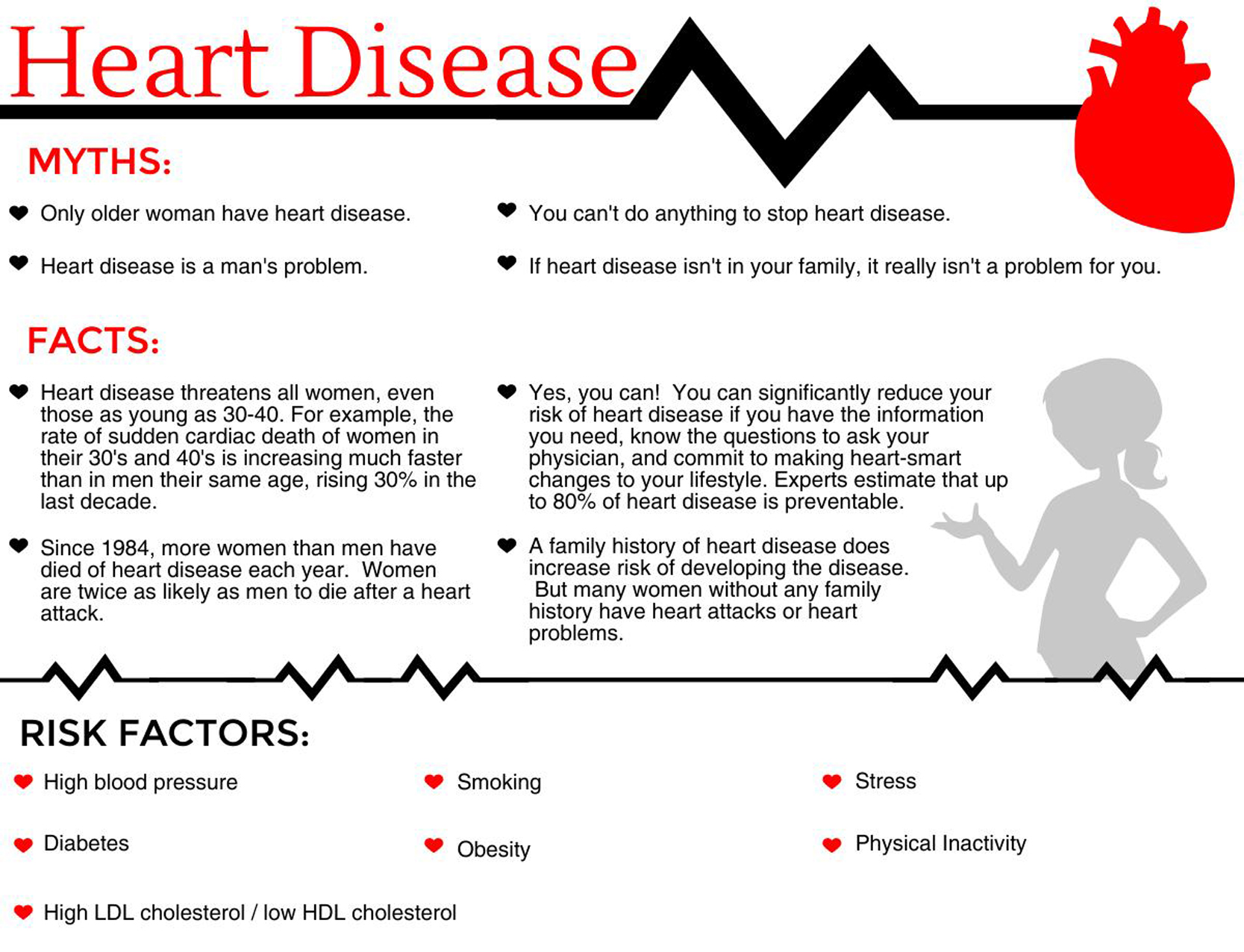As Valentine's Day approaches, it makes sense that February is Heart Disease Awareness in Women month. Signature MD, the concierge management company I use, invited me to give some healthful and helpful medical information on the topic, which we have provided to you as well.
Heart Disease In Women
Written by: Tyler McCoy
Heart disease generally affects more women than it does men. In the U.S., 1 in 4 women will die from heart disease. The most common form being coronary heart disease (CHD) - which is the leading killer of both men and women in the United States.
Heart disease can refer to a number of different conditions that affect your heart from blood vessel diseases-such as coronary artery disease, heart rhythm problems-like arrhythmia, to genetics-such as hypertrophic cardiomyopathy and more. As a woman, here are some myths and facts you should be aware of when educating yourself about heart disease:

The Doctor Weighs In
Dr. Marcela Dominguez a women's health expert and primary care physician with SignatureMD, weighs in on the discussion of heart disease.
The questions: Is heart disease hereditary? What can women do to decrease their risk for heart disease? And what will increase the risk of heart disease?
As it relates to woman, "Heart disease can be hereditary, however patients can also live a lifestyle that greatly increases their risk of cardiovascular disease. Examples include eating a high sugar/unhealthy fat diet, not exercising regularly, drinking caffeinated and alcoholic beverages, and smoking. A woman can reduce her risk of heart disease by eating a low glycemic load, Mediterranean style diet, performing regular physical activity most days of the week for at least 30-45 minutes, drink adequate amounts of water each day (half of your body weight, in ounces of water), and maintaining a healthy body mass index," shares Dr. Dominguez.
She continues, "A common screening method for heart disease for men and women include obtaining a stress test, consisting of tracking the heart's electrical activity while walking/jogging on a treadmill and monitoring for any changes that might indicate a lack of oxygen to the heart. This particular test may not reveal an abnormality in some women, and therefore, I recommend for women to have a stress echochardiogram, combining a stress test with an ultrasound of the heart at rest and immediately after exercise. Depending on a woman's heart disease risk, she can discuss scheduling this form of testing with a cardiologist."
Symptoms & Prevention
All women face the threat of heart disease, but you should educate yourself on the symptoms and risks unique to women because heart disease symptoms in women may differ from those in men. Steps like eating a "heart healthy" diet and implementing exercise can help protect you. So how does heart disease affect women, specifically? Dr. Dominguez says "before menopause, women have less incidence of heart disease, however the rates even out once women enter menopause."
The Mayo Clinic shows that heart disease symptoms can vary but some of the most common include:
- Chest Pain (angina)
- Shortness of breath or fluttering in your chest
- Pain, numbness, weakness and coldness in your arms or legs
- Pain in the neck, jaw, throat, upper abdomen or back
- Racing heartbeat, slow heartbeat or irregular heartbeat
- Dizziness or lightheadedness
- Fainting
- Fatigue
- Swollen Limbs (legs, ankles, feet)
- Fever - most common with heart infection
- Skin rashes or unusual spots
Prevention of heart disease consists of regular check-ups with your doctor and seeking emergency help if you experience any of these heart disease symptoms. It is easier to treat if detected early, so keep your doctor abreast on your health. Your doctor can also provide you with steps you can take to reduce your risk of getting heart disease if you are worried or if your family has a history of heart disease.
If you or someone you know is interested in better understanding your heart disease risk profile and would like to have a comprehensive evaluation including blood workup that is covered by most insurances, please contact our office to schedule an appointment.